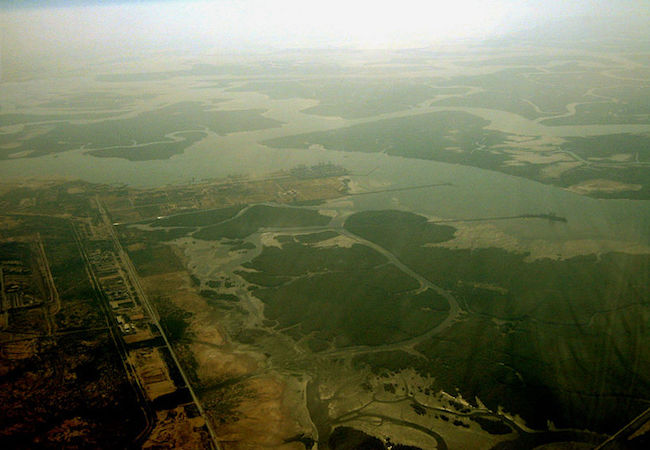
By Sadia Kazmi
This is quite unfortunate that despite having vast energy resources especially the coal reserves in Thar, Baluchistan, and Punjab, Pakistan is in the throes of energy crises. Its energy potential remains largely untapped or goes to waste due to incapable management and lack of effective framework and policies. The frequent and prolonged electricity outages could lead to economic collapse of the state. As per some estimates, over 140 million Pakistanis do not have access to the power grid and are suffering twelve hours or more of load shedding on daily basis. This not only causes suffering at the individual level, agitation and anger against the government, but adds to the socio-economic plight of the state as well. Loss of GDP growth rate and decline in the industrial and commercial output has been frequently witnessed.
China and Pakistan attempted to address this dire problem together and in November 2014 came up with some early harvest energy generation projects based on coal, solar, wind and hydel power. The reason why the energy projects with a total capacity of 10,400MW were given priority (categorized in early harvest scheme) is obvious: it is the most pressing issue Pakistan is facing today and merits an immediate attention along with substantial practical measures to overcome the issue. CPEC at the moment covers 12 early harvest energy generation projects including Sahiwal coal fired project, Port Qasim power plant and Karot Hydro power station. It is also strongly believed that these projects will be completed by 2017-18 which would help to meet energy requirements of the country sufficiently.
Recently the OBOR Summit in China held in the mid of May 2017 brought further hopes for Pakistan especially in the energy sector along with other significant infrastructural areas. Pakistan and China sealed agreement on a number of energy projects under the ambit of CPEC.
According to the new agreement there shall be 15 CPEC prioritized energy projects with the installed capacity of 11,110MW. The Three Gorges Pakistan Second Wind Power Project (50MW), the Three Gorges Pakistan Third Wind Power Project (50MW), the Hubco Coal Power Plant (1,320MW) and Oracle local coal power plants (1,320MW) are included in the prioritized list. Chinese stance in this regard is very clear: “We come to Pakistan not for profits only. We attach more importance to development of local industries, helping them to become more sustainable”. This deal is more pragmatic considering the fact that it is based on recommendations made by CPEC Energy Planning Expert Group earlier this year in February. Also the fact that these recommendations were presented after extensive research work and scientific analysis make them more viable. By now many of these energy projects have shown considerable progress. The energy projects include one solar, four wind, and four coal power plants, which are all anticipated to complete by 2019 with the capacity of 6810 MW. It is hoped that this initiative will create employment opportunities, improve the problem of load shedding, and will bring great socio economic dividends.
However a very important aspect is the conservation of energy that should not be ignored. No matter how many energy generation projects are launched and measures are taken, it will not effectively deliver unless the energy conservation mechanism is put into place. The idea of energy conservation entails reduction of energy consumption through different means such as efficiency enhancement, consumption of commodity with a sense of civic responsibility. With the increase in population and depleting energy resources across the globe, the conservation of energy has become an important consideration in energy security concerns. Particularly in case of Pakistan, the problem of energy generation and energy conservation are instigated by widespread corruption and inefficient use of energy. Hence it is important that concerted efforts are made by both the political sector as well as common citizen. It is important to inculcate the awareness to consume civic commodities with a sense of ownership and gratitude.




